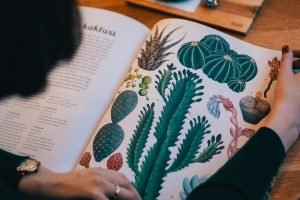 Unit studies are a great way to learn, especially for topics that you want to explore in greater depth or from different points of view. Fantastic unit studies are easy to find for popular classics, but what if the subject you want to study is obscure—like the Icelandic Commonwealth during the late Middle Ages? If you can’t find exactly what you’re looking for, it might be time to make your own unit study!
Unit studies are a great way to learn, especially for topics that you want to explore in greater depth or from different points of view. Fantastic unit studies are easy to find for popular classics, but what if the subject you want to study is obscure—like the Icelandic Commonwealth during the late Middle Ages? If you can’t find exactly what you’re looking for, it might be time to make your own unit study!
Step 1: Explore Your Resources
Traditionally, the first resources we seek are books. With obscure topics, many of the books you find may only be available as an e-book or a .pdf that you can download or read on an electronic device. Many colleges have online journals filled with research studies or dissertations from their professors. Projects like sewing costumes, building models, or visiting universities and museum collections that showcase your subject are also great ways to enrich your study.
Step 2: Consider Your Audience
Some students will slowly and methodically think on one resource at a time, finish it, and then move on to the next resource. Some will bounce between multiple resources as their interests lead them. Some children are self-motivated and easily pace themselves, while others will need you to help them make a study plan. Consider your child’s personality when making your plan. The best plan is the one your child is going to enjoy doing, so be realistic!
Step 3: Make Your Plan
Some families make lesson plans using increments of time (like 1 study per month) as the frame of their unit study. They do as much as they can for 4 weeks, and then they move on to a new unit study.
Another approach is to make a unit study from a single piece of literature. The parent will pull out vocabulary words for their children to learn while they are reading, portions to diagram or copy for handwriting, and themes to discuss. For social studies and history, their family will learn about customs, traditions, and the period in history when the book took place. For older kids, you may easily supplement by choosing a greater volume of work, extra resources, or work of a greater difficulty.
For more ideas on unit studies, follow NCHE on Pinterest at nche1984.




